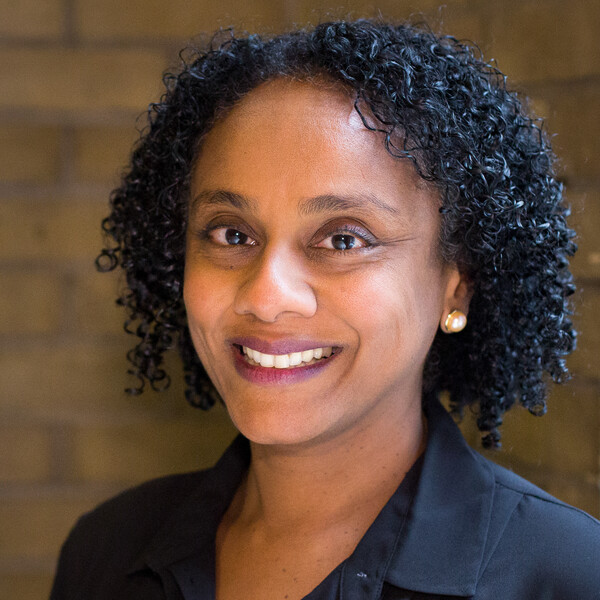Mobile Menu
- Education
- Research
-
Students
- High School Outreach
- Undergraduate & Beyond: Community of Support
- Current Students
- Faculty & Staff
- Alumni
- News & Events
- Giving
- About

Lisa Robinson, a clinician-scientist and paediatric nephrologist who seeks to understand the molecular mechanisms behind kidney disease and transform care for children living with complex illnesses, has been appointed dean of the University of Toronto’s Temerty Faculty of Medicine.
Currently Temerty Medicine’s vice-dean, strategy and operations and co-chair of its finance committee, Robinson will assume her new role on July 1, 2024 for a five-year term.
She was also appointed vice-provost, relations with health-care institutions for the same term.
“I’m very biased, but the faculty, the university and the Toronto Academic Health Science Network (TAHSN) structure are incredible – so I’m very excited,” said Robinson, a professor in Temerty Medicine’s department of paediatrics and the Institute of Medical Science.
Robinson, who earned her MD at the university, is a staff physician and former head of the division of nephrology at the Hospital for Sick Children (SickKids), where she specializes in caring for children with kidney disease, including a focus on renal transplantation.
A senior scientist in the cell biology program at the SickKids Research Institute, Robinson has led a research program – both fundamental and translational – over more than two decades that has encouraged collaboration between scientists, clinicians and learners at all levels. Her work draws on biochemistry, cell biology, molecular biology, advanced microscopy and disease models to explore immune responses in the context of kidney injury and progression of kidney disease. She is also investigating ways to expand the pool of viable donor kidneys available to patients who need kidney transplants.
“What I really want to do is use the new knowledge we generate from this research to transform the way we care for children and adults with kidney disease,” said Robinson, who holds a tier-one Canada Research Chair in vascular inflammation and kidney injury.
Robinson is a dedicated mentor and educator who has supervised many undergraduate and graduate students as well as post-doctoral fellows. She founded the SickKids Research Institute’s Kids Science program, which gives middle and high school students from under-served communities the opportunity to learn about careers in science and technology.
“Professor Robinson’s commitment to inclusive excellence, her advocacy for the sector and her vision for the future will be key to the success of the Temerty Faculty of Medicine in the years ahead,” said Cheryl Regehr, U of T’s vice-president and provost.
Robinson will succeed Professor Trevor Young in the roles after he was appointed U of T’s next vice-president and provost earlier this year, with his term beginning Jan. 1, 2024. Professor Patricia Houston will serve as interim dean of Temerty Medicine until Robinson assumes the role in July.
Robinson said Young made “enormous” contributions to the faculty.
“Dean Young was the catalyst behind our Academic Strategic Plan, in which so many members of our community see themselves reflected,” Robinson said. “His approach, vision and relational leadership also helped set the stage for the Temerty family’s historic gift to the faculty, which has been transformational.”
As dean, Robinson said she is keen to explore ways to further grow supports and opportunities for Temerty Medicine students.
“I want to renew our emphasis on a student-centric approach that addresses financial challenges, wellness, mental health and mentorship – and use the collective expertise we have across TAHSN to give our students a competitive advantage,” she said, adding that her priorities also include strengthening the recruitment, development and support of faculty and staff.
“We have to renew our focus and make sure that we create an environment in which every member of the community feels valued because that’s the only way in which every person can flourish.”
Robinson also wants to leverage TAHSN – which comprises U of T and partner hospitals – to maximize research potential, accelerate translation of research and foster a renewed emphasis on commercialization and industry collaboration. “Our people flow back and forth across U of T and partner health-care institutions, so we’re uniquely positioned to take advantage of this unique ecosystem,” she said.
To advance inter-disciplinary research, Robinson intends to strengthen Temerty Medicine’s ties with partners across U of T’s three campuses, including the Mississauga Academy of Medicine, Scarborough Academy of Medicine and Integrated Health (SAMIH), the Faculty of Applied Science & Engineering and the Faculty of Arts & Science.
“It’s a matter of thinking broadly about the broader environment and making sure we have opportunities to bring together people who wouldn’t normally work with one another.”